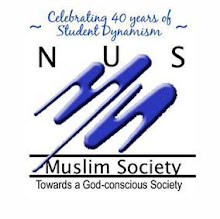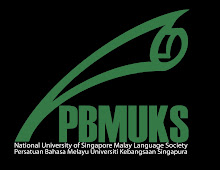
The relation between the human will and the Divine Will is an issue that can be deeply troubling for the reflective Muslim. Islamic Revelation clearly and emphatically indicates both that the human being is responsible for real choices and actions and that every event occurs only as Allah wills. This represents one of the deepest mysteries in the history of Islamic theology. Thus, we will not pretend to find its answer. Instead, we will explore the nature of the question itself and how it presents itself in the life of the Muslim, focusing especially on the ramifications of the possible attitudes toward the seeming paradox with respect to one’s relationship with Allah and the challenges of daily life. Lastly, we will suggest that the essential elements of the problem of free will and determinism remain as a universal feature of the human condition even when removed from any theological context.
Readings for the above topic are available here:
http://www.megaupload.com/?d=J81GRCRQ
Alternatively you can also get it from this website:
http://muslim-canada.org/sufi/ghacontents.html
Edward Omar Moad, Visiting Fellow
Department of Philosophy
Faculty of Arts and Social Sciences
National University of Singapore
Edward Moad is on a postdoctoral fellowship at the Department of Philosophy at the National University of Singapore. His main interests are in metaphysics and Islamic philosophy. Recent appointments include Lecturer at the University of Texas Pan-American, Graduate Student Instructor at University of Missouri-Columbia, and Drive-thru Cash Register Customer Service Representative at Taco Bell on 7 highway in Blue Springs, MO USA.
Programme
Monday 12 May 2008
| 6.15pm | Registration |
| 6.40pm | Welcome Address by Young AMP |
| 6.45pm
| Staging of Genap 40 – Exactly 40 days by Irfan Kasban |
| 7.00 pm | Presentation on “Freewill in the Grand Design of the Creator”
Dr. Omar Edward Moad Post-Doctoral Fellow Department of Philosopy, NUS |
| 7.30pm | Break for Maghrib and light refreshments |
| 8.00pm | Floor Discussion |
| 9.10pm | Closing Remarks |
In 40
by Irfan Kasban
In 40 days, a sperm and egg becomes a drop of blood, a chunk of meat, and then its roh (soul) to be blown into it by an angel on the 40th day. Along with its roh, four other decrees will also be written onto it; takdir, rezeki, iman and ajal (fate, sustenance, faith and finiteness). Hawa who is pregnant, receives a premonition that she will meet the angel, Malaikat, on the 39th day, where she manages to enquire about the fate of her child, and herself, and reveals her master plan in challenging predestination.



9 comments:
hi just wondering if we need to rsvp and whether just anyone can like come?
salam diana,
nope, no need for rsvp. Just come and bring as many people as you want :)
Great job on the forum just now, Alhamdulillah. Thought i'd share a link on Plato's 'Allegory of the cave' the prof kept referring to just now, from ' The Republic':
http://en.wikipedia.org/wiki/Allegory_of_the_cave
Best to read the original text of course :)
philo-fan,
shamir
I thought it was a job well done! I cannot wait for the next one insyaAllah.
salaam,
hamdolilah subhanau wa ta3ala for a good session yesterday.
I thought I would share the link to a video on the verses of the Quran relating to human creation - relating tot he play that was staged yesteday.
http://www.youtube.com/watch?v=AZEoCdoDbQE
http://www.youtube.com/watch?v=jIrg-iRU8G8
here is another clip on the Hadith related to human creation and his destiny.
Hope you guys have enjoyed the videos!!
To continue the discussion we started on Monday evening, I've penned down some snippets of the discussion with a non-extstent conclusion. For your further reflection.
Its the same entry you've been emailed - do comment!
There wee goo - Bism Allah
Freewill Exists
There was the majority camp that opined that indeed - "freewill" does exist - it was most explicitly articulated by one of the participants who said - " The Quran stated that we have it and we will be called to judgement for our action. Furthermore Allah also says - " la nughayer ma biqawmin hatta an yughayiro ma bianfusihim" - roughly translated as: "We will not change the state of a people untill they change their state by themselves." - that means we do have a free choice.
Are we really "Free"?
There are those who thought that a thorough deconstruction of the concept "free" was due. how free are we really? A number of the participants pointed out that all our choices are governed by a) neurology and/or b) past experience and/or c) our limited knowledge / rational faculty and d) by God. So they concluded then that every choice we make is not "free" as its largely dependent on our personal contexts, sensual perceptions, prejudices and fate.
Meaning in Action
In response, Dr Omar, did affirm that each choice we make - is "a meaningful purposeful" one - he highlighted that if we made choice based on the absolute sense of freedom - then all our actions would be involuntary reflexes.
Free will doesn't Exists
"thy Lord said to the angels: "I will create a vicegerent on earth. They said: "Wilt Thou place therein one who will make mischief therein and shed blood? Whilst we do celebrate Thy praise and glorify Thy holy (name)?" He said, "I know what ye know not" (HQ 2:30).
Thereupon, Allah sent Adam to heaven knowing that he'd taste the forbidden fruit. So did Adam have a choice - or did he do what was ordained in the grand design?
To those who contemplated that argument, that God already knows our destiny and that our 'choices' are ordained for a reason, Dr Omar introduced the concept of "temporality".
Temporality [very losely explained here]
Temporality is a condition only unique only to our state in the earthly realm. the concept of space and time are relative and confined to our 'earthly' realm - Allah is over and above that - where time and space doesn't exist. There exist no such thing as "before" and "after". Man's destiny is written in the "lawhin mahfooz" - the protected slate - but man navigates his own assigned destiny like he'd go through a "maze. At every decisive junction - he is faced with a choice - and he "experiences" the urge to form a judgement and decide on the best route to take. Many people go down routes that lead to deadends in their lives - however - we are not meant to stay at that deadend and lament our "fate" but to actively retrace our steps and try a different route.
Freewill and Intentions
Through the choices we make in our lives - we may end up at a deadend and perish before the opportunity to retrace n reach our a favourable destination - but that isn't a problem - because Allah only expects us to die hopeful, believeing in His grace and to die trying to attain that favourable destination. Hence it is our intentions and our positive "fitra" that steers our freewill.
So whats free about our freewill?
Please see the long excerpt from the reading material below - from chapter 1 [emphasis added]
The essence of freewill to alghazali is thus, like one of the participants mentioned is the cultivation of the heart - through discipline and work and good intentions anf through learning from our on-going experiences of course. This is the central factor in our decision-making process.Within our limitations - we are free from our whims and fancies and laziness, we are free from a curse from Allah and we are free from self-dillusion and ignorance. we are aware that with sound decision, effort and reliance of Allah's Grace we can achieve much.
Practicality of such knowledge? conclusion.
What are the means and ways of cultivating the heart? What does that mean? This sounds very sufistic - is that the only way? How does this apply to the Malay Muslim youth in Singapore today?
Wa Allahu a3lam! Wa billahi al tawfiq wal Hidaya-
Salaam
Assalamualaikum,
Could we tweak the format of the programme a little? Say, giving the speaker a little longer to present his topic. Maybe about an hour for the following event? Reason being to give us more to discuss about coupled with the extra basic knowledge that the speaker can impart given the extra time. This would indirectly help to foster a more interesting discussion as well. Perhaps, the break could be cut a little short...
Waraza2a - thanks for your feedback. Will take that into account.
Also please..
if we'd realli wanna get something out of the reading circles - we gotta start looking at the reading material.
Online sources are easily accessible - so do take a look before the event.
Thanks
Post a Comment